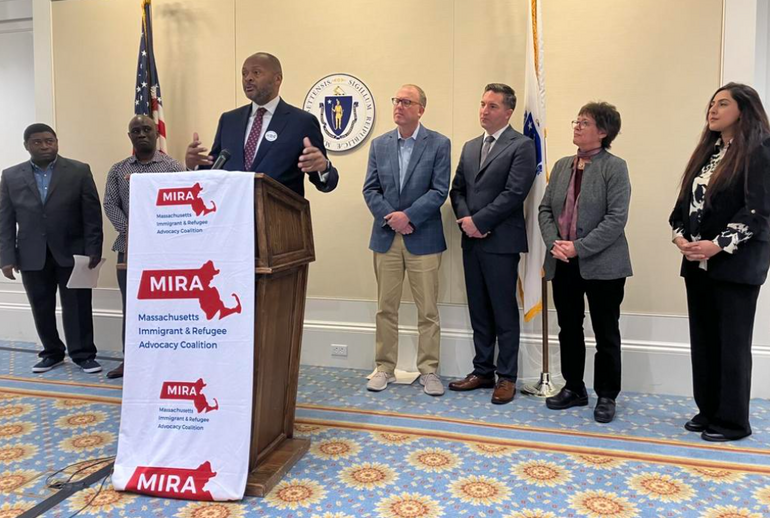Foreign-trained physicians in Massachusetts are poised to return to practicing medicine under a new law that is also expected to alleviate primary care shortages for underserved and rural communities.
The economic development bill Gov. Maura Healey signed last month creates a streamlined pathway to licensure for internationally trained doctors while eliminating major barriers to staying in the field, such as requiring immigrants to repeat residency training in the United States.
“This bill will allow foreign-trained physicians to come to the workforce and put their skills and experience into practice and help those communities who are facing difficulty getting timely and cost-effective health care because of [the] shortage of physicians,” Dr. Saira Asjad, a Pakistan-trained physician, said at a press conference Monday to celebrate the new law with the Mass. Immigrant and Refugee Advocacy Coalition.
Asjad said she intends to use the new law and resume practicing medicine.
Advocates and Massachusetts health care organizations could not immediately pinpoint how many foreign-trained physicians could become licensed. A MIRA spokesperson said the organization knows of hundreds of internationally trained physicians who would benefit from the reform.
Eligible physicians will receive a limited license to practice under the mentorship of participating health centers or hospitals, according to MIRA. They’ll later be eligible for a restricted license to practice in a “physician shortage area.”
“It will strengthen our physician workforce here in the commonwealth, with more multilingual, culturally competent, skilled doctors treating patients, especially in undeserved communities,” Sen. Jason Lewis, a sponsor of the Physician Pathway Act bill that’s now embedded in the economic development law.
Lewis added: “My hope is that this new law will be a model that we can now use to create pathways to licensure and practice for other types of health professions, as well, in Massachusetts.”
Health officials still need to develop regulations for foreign-trained physician licensure, a process that could take about a year, said Maroni Minter, MIRA’s political director.
Rep. Mindy Domb called the policy a “no brainer” when considering western Massachusetts’s provider shortage and large immigrant population.
“I’m hoping that what we’ll see as this bill gets operationalized is increases in the number of primary care providers in community health settings and shorter wait times,” Domb, an Amherst Democrat, said.
Adding one provider to a facility opens up access for hundreds of people, said Michael Curry, CEO of the Massachusetts League of Community Health Centers.
“So the reality is we want to make sure these foreign-trained physicians have access to these rural communities,” Curry said. “We want to have tools like this in our toolbelt to hire, recruit, retain these phenomenal physicians that are coming from across the world.”

